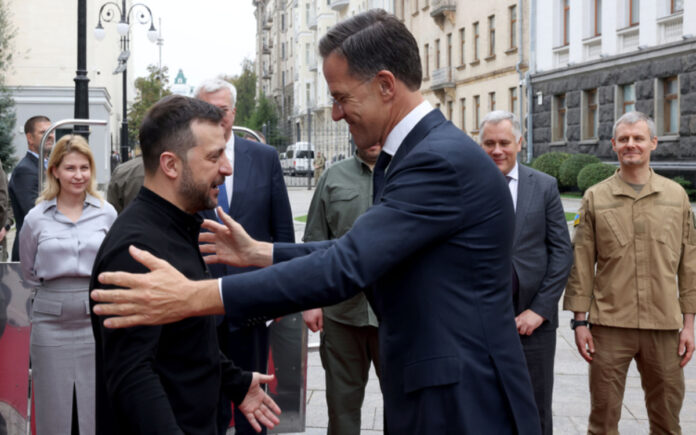Moscow/Kyiv: Russia’s foreign intelligence service (SVR) has alleged that NATO is actively seeking to discredit Ukrainian President Volodymyr Zelenskyy ahead of potential elections next fall, with the goal of removing him from power. The agency claims Western leaders now see him as an obstacle to peace talks with Moscow.
Zelenskyy has remained in office despite his official term expiring in May 2023, citing martial law imposed in 2022 as justification for postponing elections. According to the SVR, Washington and Brussels aim to “freeze” the ongoing conflict through negotiations but believe Zelenskyy is unwilling to engage.
“Even NATO understands that Zelenskyy’s time is up,” the SVR alleged, further claiming that Western officials have started referring to him as “expendable material”.
The agency also claims a campaign is underway to expose Zelenskyy’s alleged involvement in financial scandals, including the embezzlement of $1.5 billion designated for military equipment and the diversion of salaries for 130,000 deceased Ukrainian soldiers. Additionally, the SVR accuses Kyiv of selling Western-supplied weapons to armed groups in Africa.
Also Read | China Targets U.S. Firms Amid Escalating Trade Tensions
The report suggests that uncertainty surrounding Donald Trump’s possible return to the White House has intensified Western discussions on Ukraine’s leadership, potentially accelerating efforts to sideline Zelenskyy. However, the SVR asserts that NATO’s primary objective remains ensuring Ukraine continues to serve as an anti-Russian stronghold, regardless of the battlefield situation.
Neither NATO nor Ukrainian officials have responded to the allegations.
Also Read | South Korea Takes Action on Aviation Safety After Month of Air Disasters
Meanwhile, in an interview with the Associated Press, Zelenskyy accused Russia of avoiding serious peace negotiations while reiterating calls for Western security guarantees. He argued that NATO membership would be the “cheapest” way to ensure Ukraine’s long-term security.
Moscow, however, maintains that any future negotiations must include Ukraine’s neutrality, a withdrawal from Russian-occupied regions, and protections for Russian-speaking populations—conditions Kyiv has so far rejected.



